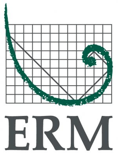Impact through collaboration
Campbell Institute
ERM has been a proud member of the Campbell Institute since June 2017. The Campbell Institute is the environmental, health, safety and sustainability center of excellence of the U.S. National Safety Council.
The Campbell Institute brings together top-performing organizations from around the globe to share best practices and lessons learned among a broader audience. The Institute and its members are also committed to helping other organizations, across every industry and sector, improve their performance.
ERM actively participates in Campbell Institute committees, working groups and meetings. For example, Rob Junnier, ERM Partner, serves on the Steering Committee and is the Chair of the Institute's Outreach Committee. Among his outreach activities, he authors and facilitates blog posts to the Campbell Institute website and social media. Recent posts address Active Leadership and Serious Injury and Fatality Prevention Efforts.
ERM Partner Caleb Wall sits on the Advisory Council of the Campbell Institute Work to Zero initiative. Launched in 2019, the initiative is aimed at eliminating death in the workplace through the adoption of emerging technology. The Advisory Council – comprised of industry, academic, government and other thought leaders in the fast-moving environmental, health and safety technology field – provides expertise, insight and access to networks to Work to Zero research projects.
ERM CEO Keryn James, along with ERM's global safety team, participated in the Campbell Institute's 2019 Executive Edge Track, a series of environmental, health and safety workshops and executive forum at the National Safety Council Congress & Expo in September 2019. Members of ERM’s Global Safety Services team, Valery Kucherov and John Kinsella, joined Keryn to meet with the National Safety Council CEO and Campbell Institute Director to explore ways to make workplace health and safety a more integral part of the organizations' sustainability strategy. This has become even more urgent and relevant with the COVID-19 pandemic.
